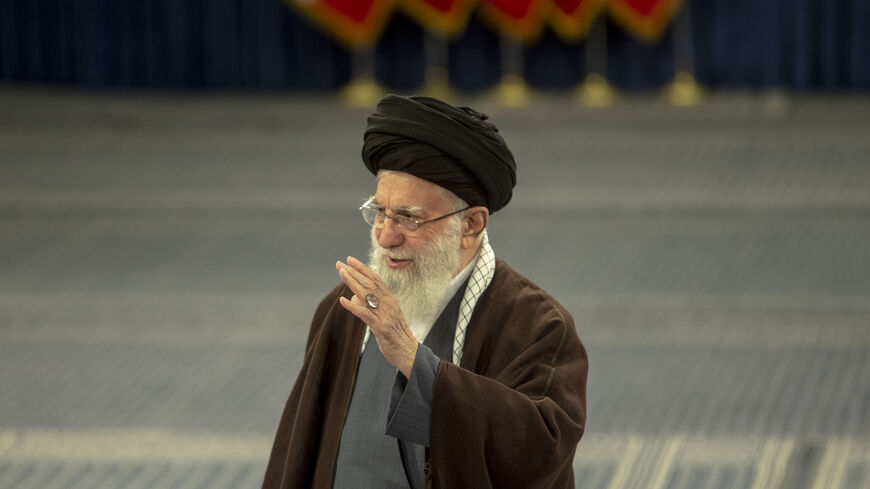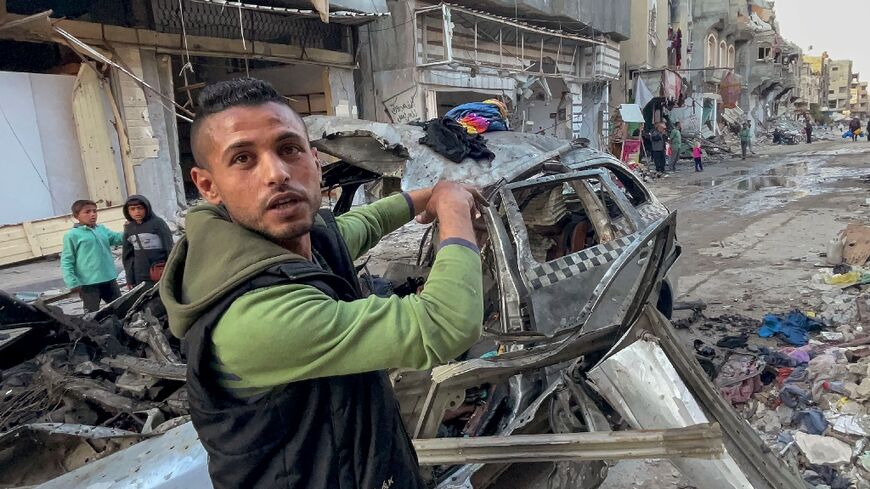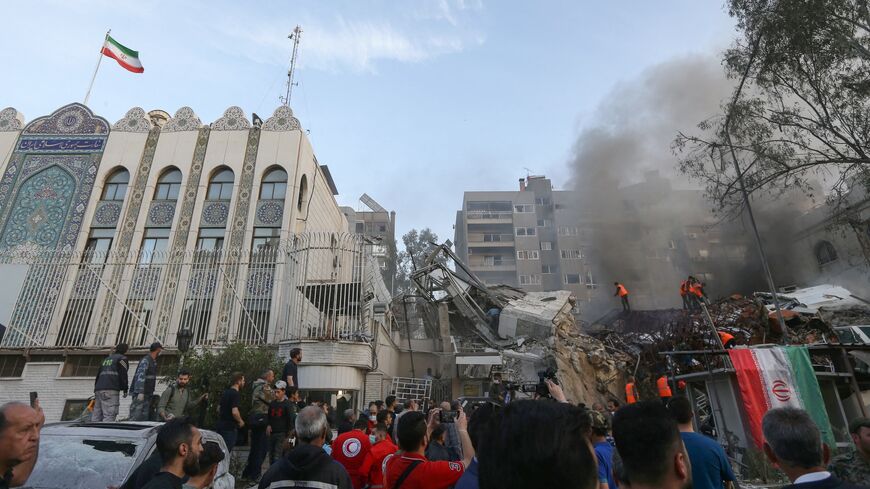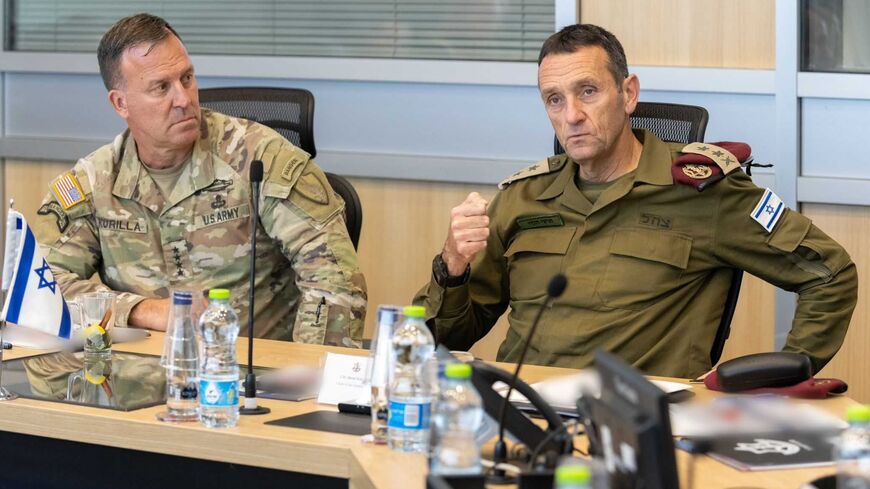As Israel braces for Iran retaliation, Biden pledges 'ironclad' support
Biden spoke hours after Iran’s Supreme Leader Ayatollah Ali Khamenei vowed to “punish” Israel for the attack on its consular building in Damascus.
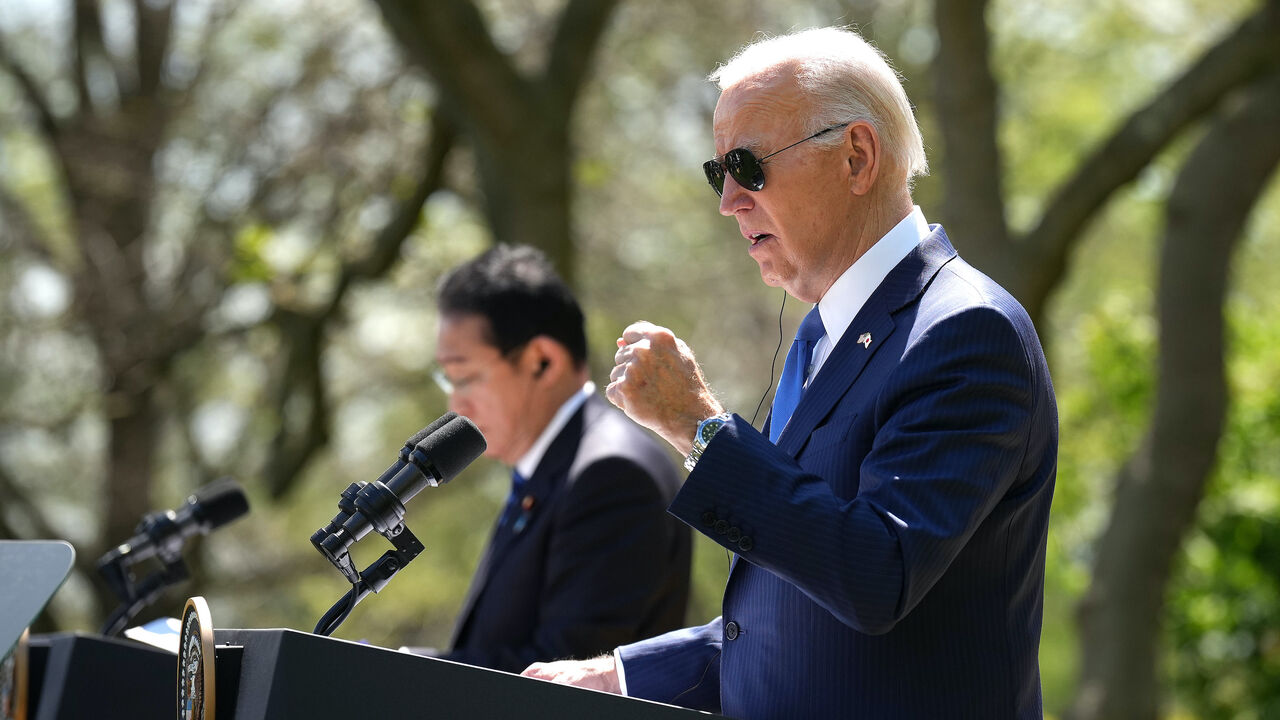
WASHINGTON — President Joe Biden said Wednesday that the US commitment to protect Israel is “ironclad” amid fears that Iran or its proxies will soon retaliate for the deadly Israeli bombing of the Iranian Consulate building in Syria.
“We're going to do all we can to protect Israel's security,” Biden said, speaking alongside Japanese Prime Minister Kishida Fumio during a joint press conference in the Rose Garden. “As I told Prime Minister Netanyahu, our commitment to Israel’s security against these threats from Iran and their proxies is ironclad."
During Eid al-Fitr prayers in Tehran on Wednesday, Iran’s Supreme Leader Ayatollah Ali Khamenei vowed to “punish” Israel for the April 1 attack, which killed seven members of Iran’s Islamic Revolutionary Guard Corps, including the leader of the elite Quds Force in Syria and Lebanon.
Israel has not formally acknowledged its involvement. Israeli Foreign Minister Israel Katz responded on X, writing, “If Iran attacks from its territory, Israel will respond and attack in Iran.”
The Israel Defense Forces called up reservists in air defense units last week in anticipation of potential strikes.
The United States has assessed the Iranian response as being “imminent,” according to Bloomberg, which cited people familiar with intelligence assessments.
CENTCOM commander Gen. Erik Kurilla is expected in Israel on Thursday, Axios reported. "The visit is to coordinate around a possible attack on Israel by Iran and its proxies," two Israeli officials told the outlet.
Meanwhile, Reuters reported on Wednesday that the German air carrier Lufthansa was suspending flights to and from Tehran until Thursday, citing “the current situation in the Middle East." Other reports pointed out, however, that the suspension started on April 6.



